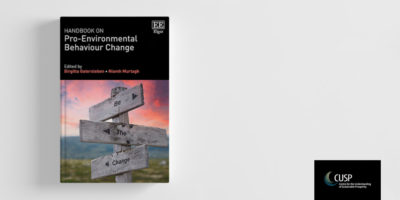Consumer culture ideals—an affluent lifestyle and perfect appearance—are inescapable; they dominate advertising, digital and traditional media, and social trends, such as ‘retail therapy’ or ‘fitspiration’. But what are the psychological consequences, when we internalise these materialistic and appearance-focused ideals as our personal goals? Professor Helga Dittmar, an applied social psychologist at the University of Sussex, leads a well-established research programme that examines the impact of consumer culture ideals on identity, well-being, and behaviour in adults, adolescents, and children. She has been awarded Fellowships by the Academy of Social Sciences and the Association for Psychological Sciences.
Helga’s early work on material possessions as symbols of identity showed their importance for building, expressing, and maintaining our sense of self, as well as for forming impressions of others (1992, based on PhD).
Her research from 1993-2010, funded by ESRC and Leverhulme, is chronicled in the Research Monograph: Consumer Culture, Identity and Well-Being. Highlights include:
- Two-factor model of compulsive buying with materialistic values and identity deficits as predictors
- Experimental evidence that body ideals in the media have a causal impact on body image and related behaviours
—Women and men report greater body dissatisfaction after exposure to idealised bodies in digital and traditional media (APPG Body Image)
—Advertising effectiveness is not compromised when models have healthy, normal bodies (ESRC School Briefings)
—Body dissatisfaction after media exposure can lead to potentially harmful behaviours, such as disordered eating or cosmetic surgery
—5-7-year-old girls have lower body esteem and want to be thinner after exposure to Barbie dolls (Time Magazine) or Disney princesses - Multimethod research on detrimental effects of a materialistic value orientation (more detail below)
A list of Helga’s publications can be found on the University of Sussex website.
Work w/ CUSP
Helga has had links with CUSP (and SLRG) for some time, concerning the role of individuals’ materialistic value orientation for personal, social, and ecological well-being. Her keynote address at a SLRG dissemination conference, The Limits of Materialism, summarises her work 2010-2014.
- Meta-analytic evidence from 250+ studies that a materialistic value orientation (MVO) has a robust link with lower well-being (subjective WB, self-appraisal, mental & physical health)
- Meta-analytic and survey evidence that a stronger MVO is linked with less environmentally friendly attitudes and more costly behaviours
- Evidence from a longitudinal survey with 2000+ children that stronger MVO leads to lower well-being over time learning, and multi-method evidence that MVO has detrimental effects on children’s learning (motivation and school grades)
This research fellowship with CUSP is great because it makes possible collaborative work on extending our understanding of how and why MVO has these detrimental effects and how they can be reduced or prevented. We are starting with a joint analysis of an international survey to examine (a) whether MVO is linked to lower well-being in various countries that differ (e.g., economic system, GDP, advertising spend, cultural values) and (b) whether various forms of human thriving influence the MVO-well-being link (e.g., mindfulness, flow, meaningful life).



